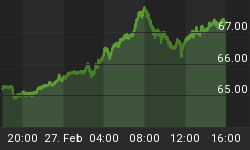Based on the October 2013 Market Overview report.
Economics is an ironic science (if it is science at all by physicists' standards). One can be perfectly correct about various phenomena in general, but offer completely wrong predictions in detail. Nevertheless offering correct predictions is still a significant skill, even if your theories are wrong. Living aside Janet Yellen's theories for the moment, we should praise her for the prediction abilities. As the study of Wall Street Journal confirms, she was the best predictor from the group of the Federal Reserve Policy makers.
In predicting the inflation rate, labor markets and GDP growth Yellen overshadowed the others. But what has been heard most recently was her statement in 2005, when the real estate bubble was at its highest. Her reasonable observation was: there is a bubble because of the high relation between real estate prices and rent. Yet the more thought-provoking were the statements on the relation between the bubble and monetary policy. She asked three questions. How devastating the bubble would be for the economy? Can the Fed successfully mitigate negative effects of popping the bubble? Should monetary policy be used to deflate the possible real estate bubble?
In answering the first question Yellen did not see that a bust would have severe consequences for the banking and financial system, ergo for all other industries not directly related real estate. Despite noticing the existence of a bubble, she believed the economy should "absorb the shock", since the reversion of the price ratio of price-to-rent would represent only a half of the adjustment from 2000/2001.
Moreover in answering the second question, Yellen suggested that a change would kick in gradually, because household spending can be smoothened (so the Fed could react to those changes, because the central bank can mostly influence the economy in the longer run).
The answer to the third question was negative, because apparent positives of the Fed's action are overweight by its disadvantages. Any tighter monetary policy in order to stop the bubble can impose "substantial costs" on all other sectors, and result in various "imbalances". Notice that this statement was given few years ago, in 2005. A year, when the economy appeared to be in good condition, with the possible future recession envisioned as yet another slowdown (just as many after Second World War). The vision was not a major Recession with capital "R" that was about to be the biggest bust since the Great Depression.
If we may use the horrible central banking jargon, in 2005 Yellen was closer to "dovish" interpretation of reality, and not "hawkish" (that is she was rather not concerned by possible inflationary scenarios).
What does this history tell us for possible future actions? The general rule is: if you're "dovish" in bad times, then you are very likely to be even more "dovish" during worse times. Not just very likely, but we should say very, very, very likely. Since the times are rather "worse" than "bad", do not expect backing out from "stimulation" policies. Soft monetary policy in favor of the banking system is all well and good, despite the change in the chairman position.
Apparently Janet Yellen is not going to predict the bubbles that should result from those policies. Naturally, the long-term implications for the gold market are bullish.
Thank you.
The above is a small excerpt from our latest gold Market Overview report. If you have a free account with us, you can sign up for these reports here.
















